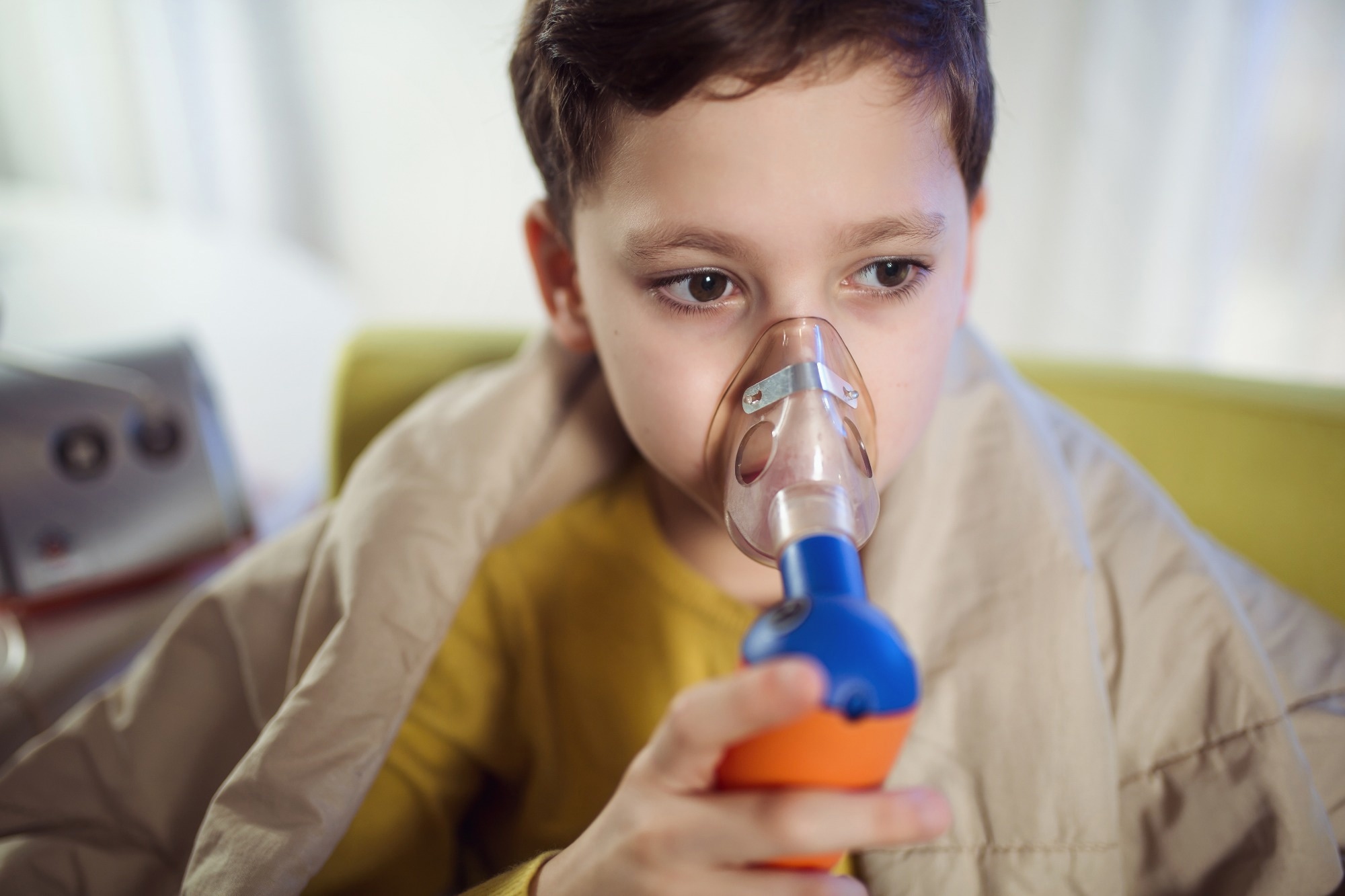Human metapneumovirus (hMPV) causes acute respiratory tract infections in children. This virus exhibits seasonal variations, with a surge in infection rates often reported during the spring in the sub-tropical and temperate regions.
The non-pharmaceutical interventions (NPIs) implemented to restrict the spread of the severe acute respiratory syndrome coronavirus 2 (SARS-CoV-2), the causal agent of the coronavirus disease 2019 (COVID-19) pandemic, disrupted the seasonality of hMPV and other respiratory viruses in various parts of the world, including Western Australia (WA).
 Study: A surge in human metapneumovirus paediatric respiratory admissions in Western Australia following the reduction of SARS-CoV-2 non-pharmaceutical interventions. Image Credit: adriaticfoto / Shutterstock.com
Study: A surge in human metapneumovirus paediatric respiratory admissions in Western Australia following the reduction of SARS-CoV-2 non-pharmaceutical interventions. Image Credit: adriaticfoto / Shutterstock.com
Background
Like many regions worldwide, WA closed interstate and international borders in early 2020. Subsequently, in mid-2020, a significant reduction in SARS-CoV-2 transmission was observed.
As a result, internal NPIs were reduced, and large unmasked gatherings were allowed. However, state borders remained closed, and all individuals had to undergo two weeks of quarantine upon entry.
Life returned to near normal inside the closed borders for 2.8 million individuals residing in WA. These people regularly socialized, attended large gatherings, and could freely move internally.
Throughout this period, SARS-CoV-2 community detection was rare. In addition to SARS-CoV-2, NPIs also disrupted the transmission of other respiratory viruses. For example, no respiratory syncytial virus (RSV) and influenza virus transmission was observed through winter in 2020; however, an out-of-season increase in RSV transmission was observed between the summer of 2020 and 2021.
Although a change in RSV and influenza seasonality was observed globally, no evidence has been documented regarding the impact of COVID-19-related NPIs on hMPV. A prospective laboratory surveillance report indicated a decrease in hMPV incidence in 2020, followed by an increase in its prevalence in the subtropical and temperate metropolitan regions in mid-2021. However, these studies failed to evaluate clinical presentations with seasonal variability of hMPV.
About the study
A recent Journal of Paediatrics and Child Health study investigated the prevalence of hMPV through 2020 in WA, considering the implementation of NPIs due to the COVID-19 pandemic.
This retrospective cohort study included children under sixteen years of age with respiratory-coded inpatient admissions after being brought to the Emergency Department (ED) at Princess Margaret/Perth Children's Hospital between 2017 and 2021. Respiratory virus testing data for the same period was obtained and matched with admitted pediatric patients.
All patients were grouped by age and ICD-10 AM codes into bronchiolitis, wheezing, other acute lower respiratory infection (OALRI), and upper respiratory tract infection (URTI).
Study findings
A total of 44,800 ICD-10 coded respiratory ED presentations were obtained between 2017 and 2021, which included 28.9% of hospital admission. The number of respiratory-coded admissions increased from 2017 to 2019, decreased in 2020, and again increased in 2021.
Between 2017 and 2019, seasonal variations in all-cause respiratory-coded admissions were observed. The number of admissions declined after the implementation of COVID-19-related NPIs in 2020, which was followed by an out-of-season increase in respiratory-coded admissions in late 2020; notably, a surge in RSV infection was documented. For 12 months from week 13 of 2020, no hMPV-positive admissions were recorded following the implementation of NPIs.
Most hMPV-positive admissions occurred in 2021, which peaked in week 30. Compared to 2017, hMPV-positive admissions increased more than 2.8 times in 2021. Similarly, the proportion of total respiratory-coded admissions related to hMPV infection increased from 2% to 7% in 2021.
In the metropolitan region, the incidence of hMPV admissions was approximately three times higher in 2021 than in 2017. This increase was attributed to changes in physician testing practices, including an increase in hMPV testing, which could be due to SARS-CoV-2-related hospital infection control requirements.
Compared to the 2017-2019 period, children with hMPV-positive admissions were older in 2021. The maximum incidence of hMPV infection was observed in children between one and four years of age.
Although 2021 hMPV-positive admissions were higher across all phenotypes, a maximum increase was observed in the OALRI group, followed by wheezing and URTI clinical phenotypes. It is possible that the prolonged absence of hMPV may have caused waning immunity in older individuals.
Conclusions
After the implementation of COVID-19-related NPIs in WA, an absence of hMPV-positive admissions over 12 months was observed. However, in the winter of 2021, a significant surge in hMPV-positive admissions was recorded.
The maximum prevalence of this infection was observed in children between one and four years of age. Among all clinical phenotypes, hMPV-positive OALRI admissions were the maximum. This increase in hMPV cases could be driven by COVID-19-related hospital infection control requirements.
The shift in hMPV seasonality will change hMPV rates and associated phenotypes. In the future, continual testing will help estimate the true respiratory disease burden in children.
Journal reference:
- Foley, D. A., Yeoh, D. K., Minney-Smith, C. A., et al. (2023) A surge in human metapneumovirus paediatric respiratory admissions in Western Australia following the reduction of SARS-CoV-2 non-pharmaceutical interventions. Journal of Paediatrics and Child Health. doi:10.1111/jpc.16445